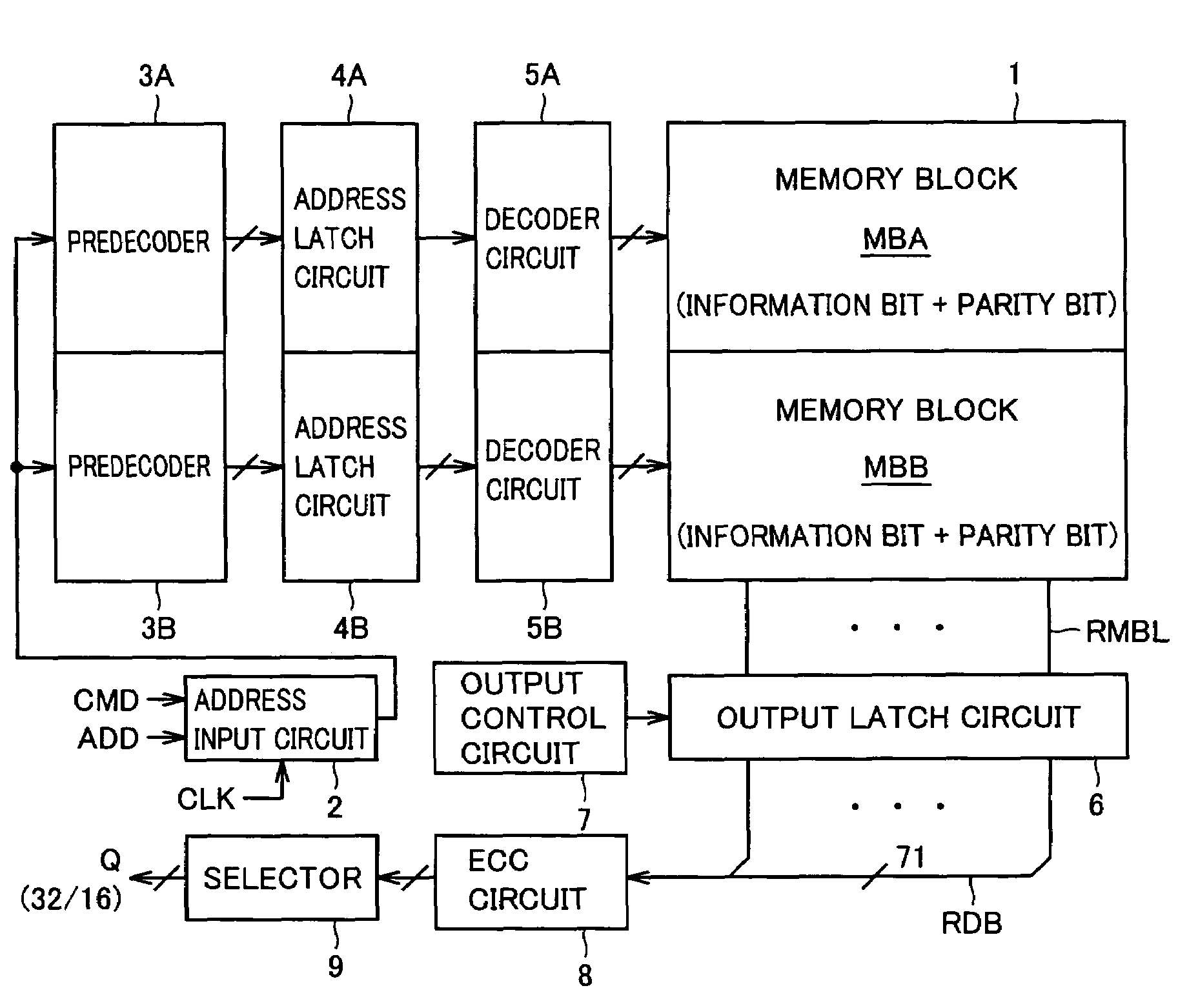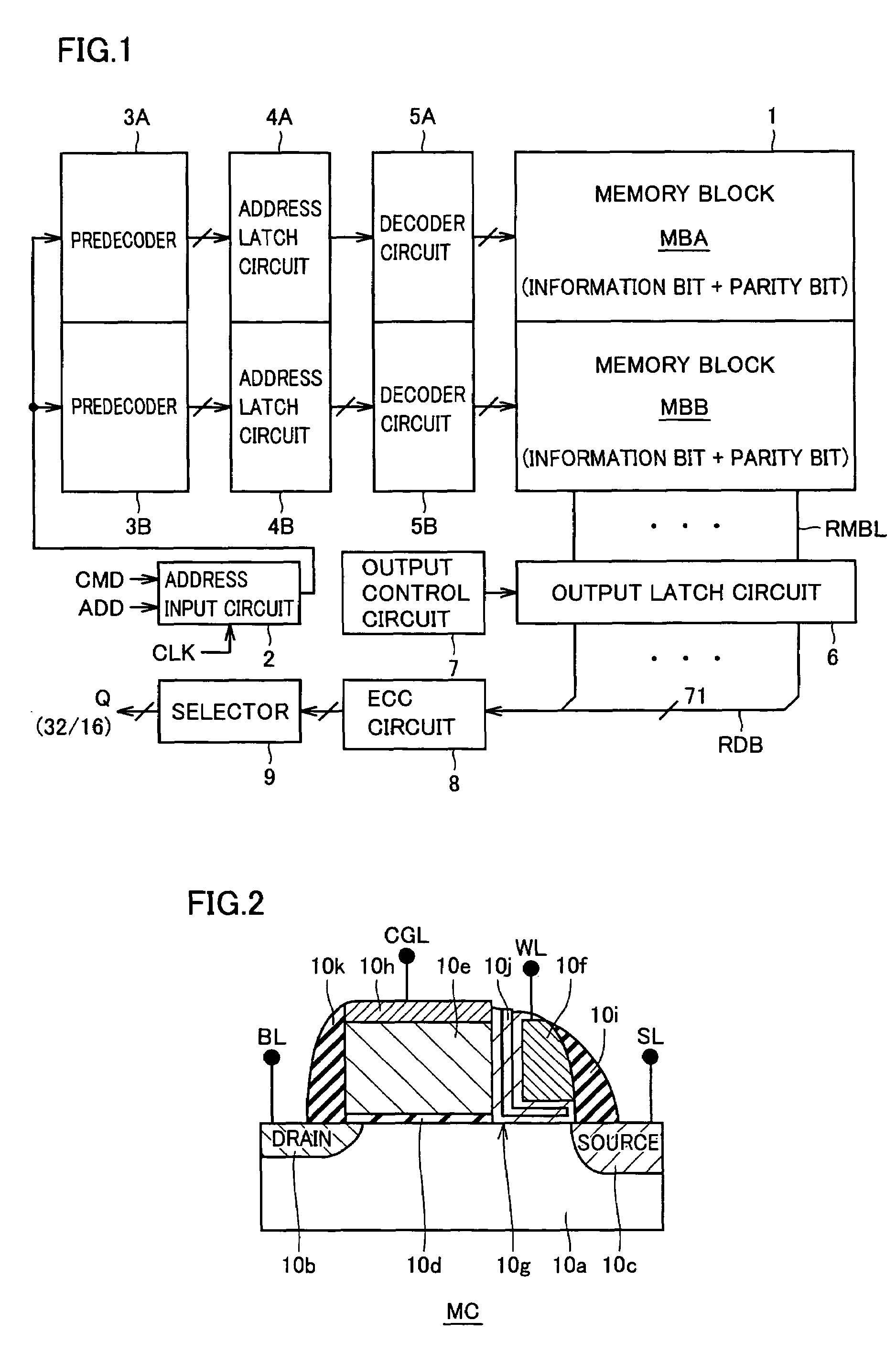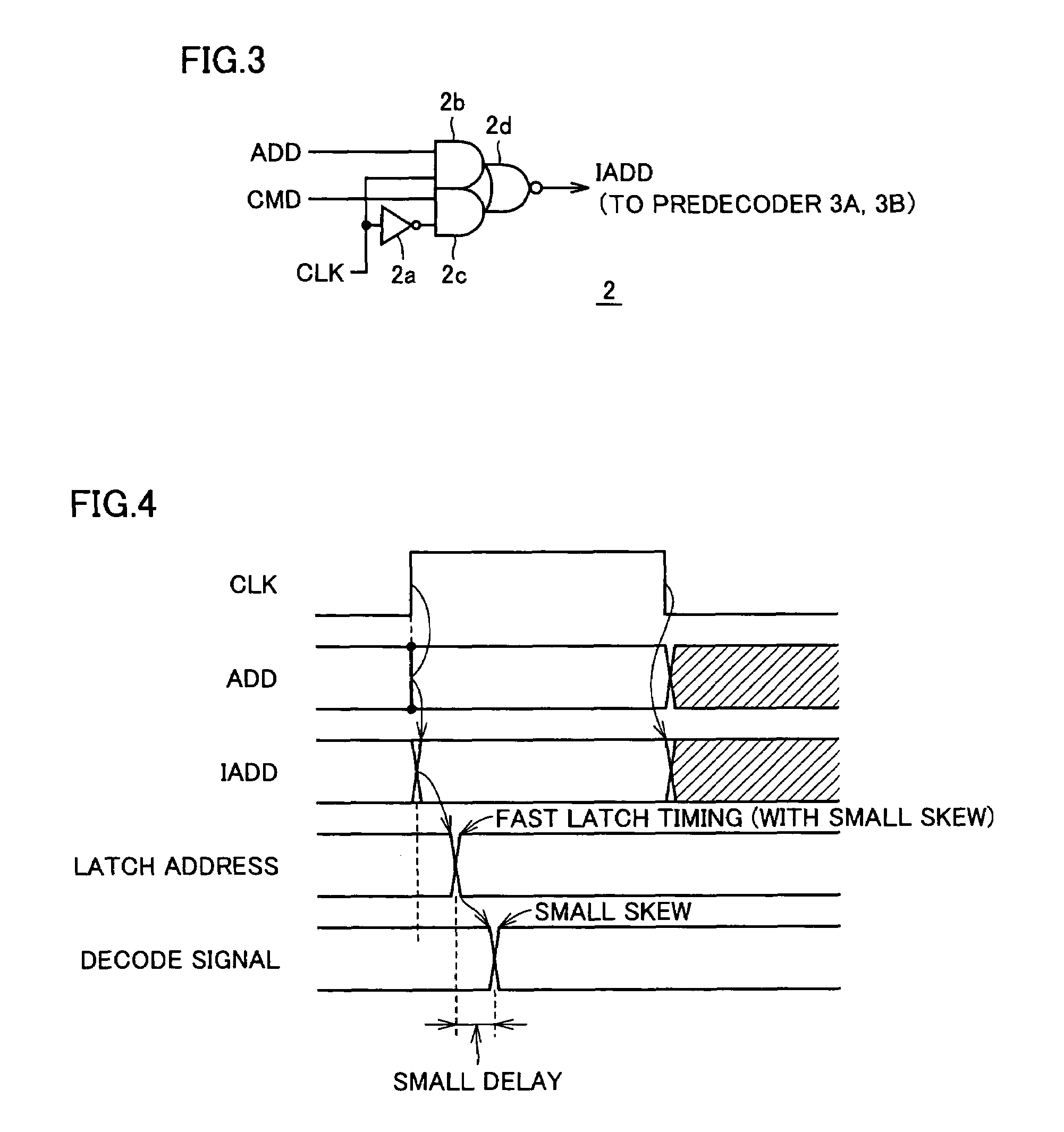Non-volatile semiconductor memory device and semiconductor memory device
a non-volatile, memory device technology, applied in static storage, digital storage, instruments, etc., can solve the problems of difficult to achieve high-speed operation, difficult to ensure accurate memory cell selection operation, and inability to correct errors, etc., to achieve accurate data reading and high speed
- Summary
- Abstract
- Description
- Claims
- Application Information
AI Technical Summary
Benefits of technology
Problems solved by technology
Method used
Image
Examples
first embodiment
[0061]FIG. 1 schematically shows a construction of a main portion of a non-volatile semiconductor memory device in accordance with the first embodiment of the present invention.
[0062]FIG. 1 shows only the construction of the portion related to data reading, and constructions of portions related to data writing (programming) and erasure are not shown.
[0063]Referring to FIG. 1, the non-volatile semiconductor memory device includes a memory array 1 having non-volatile memory cells arranged in rows and columns. Memory array 1 is divided into two memory blocks MBA and MBB. Memory blocks MBA and MBB each store information (data) bits and parity bits for forming ECC codes for error detection / correction of the information bits. The parity bits are stored dispersed uniformly in each of the memory blocks MBA and MBB.
[0064]The non-volatile semiconductor memory device further includes: an address input circuit 2 taking an external command CMD and an address signal ADD in accordance with a clock...
second embodiment
[0089]FIG. 5 more schematically shows the construction of memory array 1 and decode circuits 5a and 5b shown in FIG. 1. FIG. 5 shows a construction in one memory block of memory blocks MBA and MBB of memory array 1. Memory block MB (MBA or MBB) includes 8 memory mats MM0U-MM3U and MM0L-MM3L. Each of the memory mats MM0U-MM3U and MM0L-MM3L includes an information bit region IBR for storing information (data) bits and a parity region PBR for storing parity bits. In information bit region IBR, 16 bit line blocks each including 32 bit lines (subbit lines) are provided, and a total of 512 bit lines (subbit lines) are arranged.
[0090]Decode circuit 5 (5A or 5B) includes an X decoder 12u provided corresponding to memory mats MM0U-MM3U arranged in alignment in a row extending direction, an X decoder 12l provided corresponding to memory mats MM0L-MM3L arranged in the row extending direction, and a Y decoder 13. X decoders 12u and 12l decode a latched address (predecode address signal) from co...
third embodiment
[0105]FIG. 7 schematically shows a construction of a portion for reading 1 bit of internal data, of the non-volatile semiconductor memory device according to the third embodiment of the present invention. In FIG. 7, a construction of a portion for reading 1 bit of memory cell data from memory mats MMk and MMj is shown as a representative. Memory mats MMk and MMj correspond to the memory mat MMU (MM0U-MM3U) and MML (MM0L-MM3L) shown in FIG. 5.
[0106]In each of memory mats MMk and MMj, one bit line (subbit line) is selected from 32 bit lines (subbit lines) SBL. Here, 32 subbit lines are divided into subbit line groups BLG0-BLG3 each including 8 subbit lines SBL. A memory cell is connected to a subbit line SBL. Here, in an internal data reading path, the data is successively transmitted through the common bit line to the main bit line, and therefore, the bit line to which the memory cell is connected will be referred to as the subbit line.
[0107]In memory mat MMk, there are provided a fi...
PUM
 Login to View More
Login to View More Abstract
Description
Claims
Application Information
 Login to View More
Login to View More - R&D
- Intellectual Property
- Life Sciences
- Materials
- Tech Scout
- Unparalleled Data Quality
- Higher Quality Content
- 60% Fewer Hallucinations
Browse by: Latest US Patents, China's latest patents, Technical Efficacy Thesaurus, Application Domain, Technology Topic, Popular Technical Reports.
© 2025 PatSnap. All rights reserved.Legal|Privacy policy|Modern Slavery Act Transparency Statement|Sitemap|About US| Contact US: help@patsnap.com



